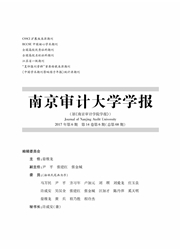

 中文摘要:
中文摘要:
将货币因素与输入性因素(如汇率、国际石油价格等)引入新凯恩斯混合菲利普斯曲线框架构建高阶滞后的混合菲利普斯曲线模型,并利用1995年第1季度至2013年第2季度的数据进行实证分析,结果显示:总需求变化对我国通货膨胀率的影响很小,而货币因素与输入性因素(如汇率以及国际大宗商品价格变化)成为影响我国通货膨胀率的重要因素;我国通货膨胀主要受到前瞻性预期的影响,而通胀惯性对通货膨胀水平的影响不大;相对而言,货币因素对我国通货膨胀具有最重要的影响。
 英文摘要:
英文摘要:
By introducing monetary factors and input factors such as the change of exchange rate and international price of crude oil into the Phillips curve, this paper builds high order delay of hybrid Phillips curve and carries on the empirical analy- sis using the quarterly data from Qlof 1995 to Q2 of 2013 in China. The results are as follows: Firstly, the change of total de- mand has smaller impact on China's inflation rate while monetary factors and input factors such as exchange rates and changes of international commodity price have played the most important role in China's inflation rate. Secondly, Inflation in China is mainly influenced by the forward-looking inflation expectations and the backward looking inflation expectations has little effect on the inflation. Relatively speaking, monetary factors have the most important influence on the inflation in China.
 同期刊论文项目
同期刊论文项目
 同项目期刊论文
同项目期刊论文
 期刊信息
期刊信息
